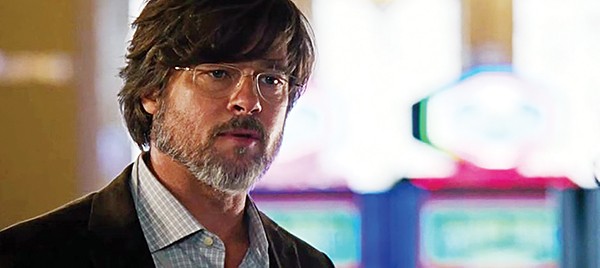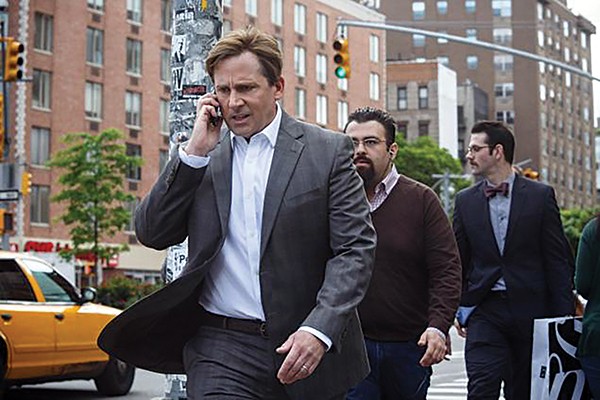In 1947, Humphrey Bogart was the biggest movie star in the world. With a fresh contract giving him greater creative control in hand, Bogie and his drinking buddy, director John Houston, set out to make a new western called The Treasure of the Sierra Madre, in which he would play the hero. But when the film was released the next year, audiences were in for a shock. As expected, Bogart was the center of the movie. He had the most lines, the most close-ups, and was featured prominently in the advertising, but his character, Fred C. Dobbs, was not the hero of the story. Played by Bogie as selfish, paranoid, vain, and crude, Dobbs was actually the villain. Houston and Bogart were subverting the audiences’ expectations to make a point about unchecked greed.
Toward the end of The Big Short, Jared Vennett (Ryan Gosling) shows the camera a bonus check for $47,000,000 he earned for his part in destroying the world economy in 2008. Speaking into the camera, he says, “I never claimed to be the good guy.”

Brad Pitt
Michael Lewis’ 2010 book The Big Short: Inside the Doomsday Machine is a detailed explanation of the events leading up to the 2008 collapse of Wall Street trading firm Bear Stearns, which precipitated the financial crisis and resulting Great Recession, the effects of which are still being felt today. Strangely enough, the film adaptation of the best seller fell to former Saturday Night Live writer and Anchorman: The Legend of Ron Burgundy creator Adam McKay. When Stanley Kubrick was researching nuclear war scenarios in the early 1960s, he decided that the only honest way to make a film about Mutually Assured Destruction (MAD) was to make it a comedy, and so Dr. Strangelove was born. Faced with the corrupt ridiculousness of Collateralized Debt Obligations (CDOs), McKay made the same choice, and created the best movie of his career.

Steve Carell
The ensemble cast McKay assembled is top-notch: In addition to Gosling, Christian Bale plays one-eyed M.D.-turned-capital manager Michael Burry; Steve Carell plays rageaholic investment banker Mark Baum, and Brad Pitt (who also produces) plays former-banker-turned-full-time-paranoid Ben Rickert. There’s a ton of complex exposition to get through, so McKay throws Margo Robbie in a bubble bath and has her explain the basics of the mortgage market. The screenplay is downright brilliant, pulling tricks like pointing out when events have been simplified to gain the audience’s trust.
Like Dr. Strangelove, the laughs The Big Short elicits are coal black, but unlike Wall Street, it tips its hand enough to avoid making its sociopathic greedheads into heroes. No one will look at Bale’s scarily committed portrayal of a speed-metal-obsessed, autistic number cruncher and say, “I want to be that guy.” Instead, McKay’s masterful sendup of late-stage capitalism will leave you saying, “Never again!”